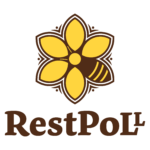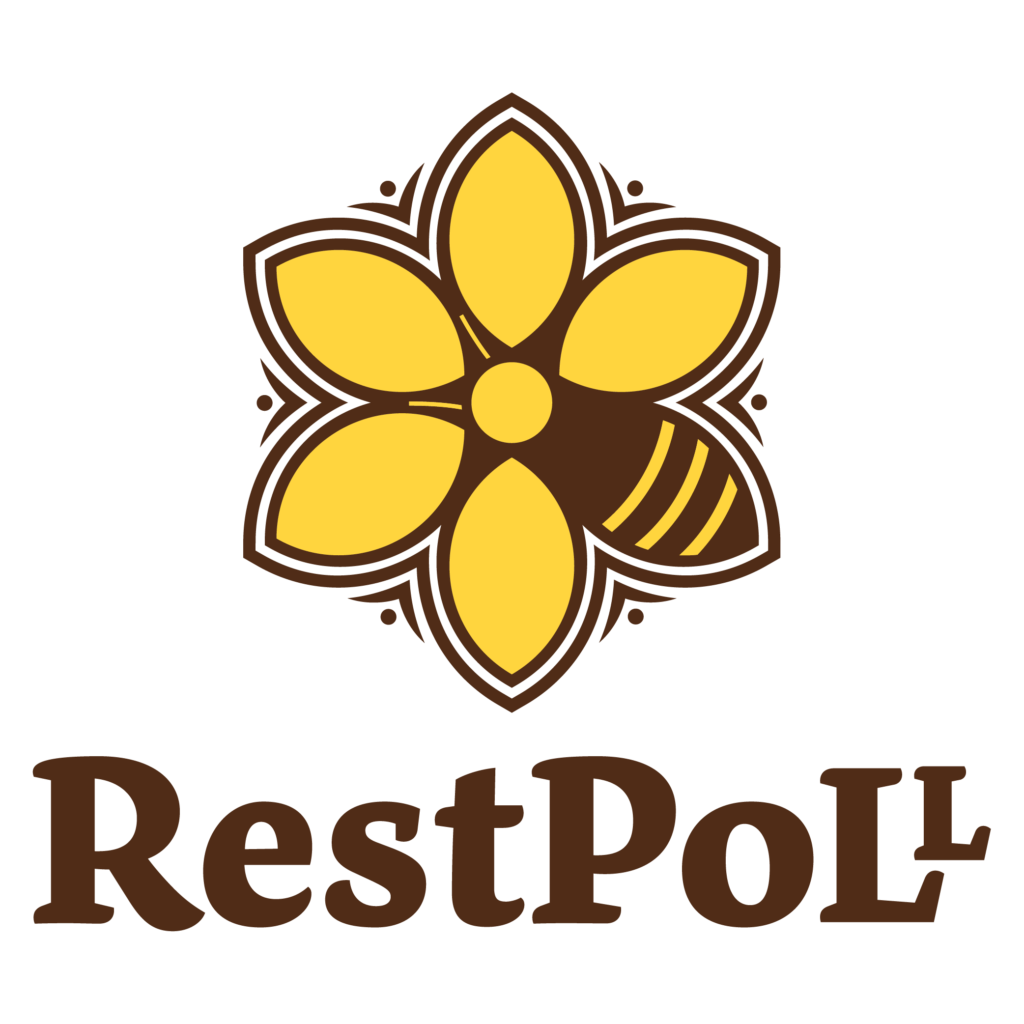About us
RestPoll is a highly transdisciplinary project aiming to provide society with tools to reverse wild pollinator declines and to position Europe as a global leader in pollinator restoration.
Who we are & what we do
RestPoll will, together with stakeholders ranging from individual land managers to governments, co-design, evaluate, and refine measures and cross-sectoral approaches to restore pollinators and their services.
The RestPoll consortium combines the expertise of natural and social scientists, NGOs, businesses, and ministries. Stakeholders along the food value chain will be engaged through newly developed participatory approaches at diverse social, ecological, and political scales.
Central to RestPoll is the establishment of a Europe-wide network of pollinator restoration case study areas and Living Labs (LL), which are unique hubs for experimentation, demonstration, and mutual learning.
What is a Living Lab?
A living lab (LL) is a dynamic and collaborative research environment that differs from traditional laboratory settings. In a living lab, experiments, research, and innovation take place in real-life contexts, often involving end-users or stakeholders directly. This approach allows researchers, businesses, and institutions to study and develop solutions in a more authentic and user-centric manner. In the RestPoll project this approach facilitates co-production of knowledge through collaboration between farmers, scientist, land managers, policy makers, and businesses.
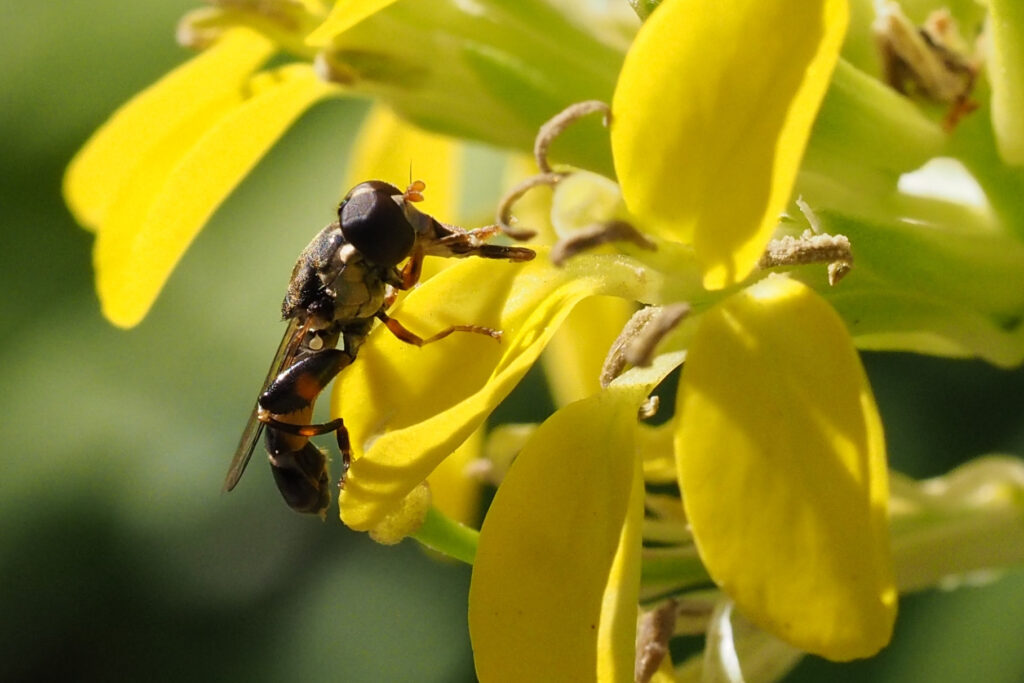
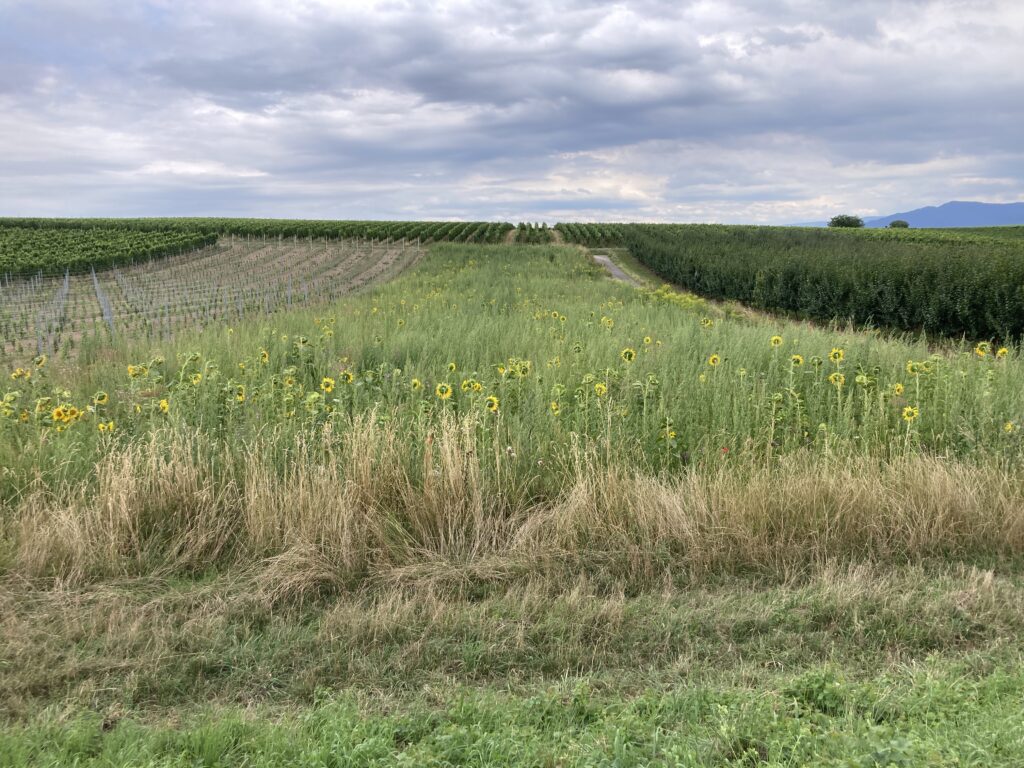
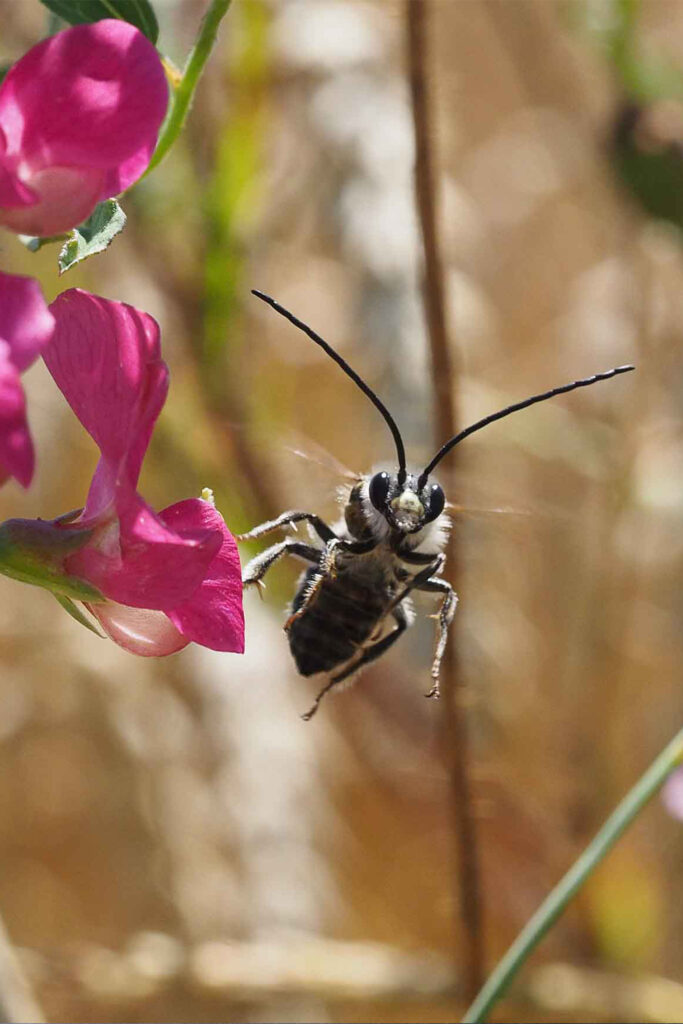
Objectives
We have identified 17 case study areas in 14 European countries with multiple restoration measures, consisting of existing agro-environmental schemes and novel, prospective schemes such as payments for ecosystem services, such as restoration-mediated pollination services, in agricultural landscapes to conserve biodiversity in general and wild pollinators in particular. Restoration activities in the case study areas are partly already set up by stakeholders in cooperation with RestPoll researchers or vice versa. In a joint participatory approach, restored plots and control sites will be selected from the different areas and expanded or adapted, aiming for the most optimal design to achieve successful pollinator restoration outcomes across European agricultural landscapes and to test the value of co-designing restoration measures
Provide open access to knowledge of pollinator restoration
Demonstrate how to improve benefits and co-benefits of pollinator restoration for nature and people
Support the development of pollinator-friendly policies and market conditions
Co-develop Living Labs in the restoration network to demonstrate best practice pollinator restoration measures across Europe
Test co-designed transferable tools for adaptive pollinator restoration
Validate context-dependence and synergistic effects of multiple restoration measures
RestPoll Expected Impacts
- Biodiversity decline, its main direct drivers and their interrelations are better understood and addressed.
- Biodiversity and natural capital are integrated into public and business decision-making at all levels for the protection and restoration of ecosystems and their services.
- Europe builds competitive sustainability and tackles climate change and natural disasters through the deployment of nature-based solutions.
- The interrelations between biodiversity, health, food, soil, water, and climate are better known.
- Practices in agriculture and forestry support biodiversity and the provision of other ecosystems services.
- Approaches for enabling transformative changes in society.
- Biodiversity research is interconnected: To enhance the ambition of national to European policies, RestPoll will collaborate with other national, pan-European and international partners and projects. RestPoll will actively foster joint activities with other pan-European projects/initiatives to combine and harmonise data and generate new approaches, syntheses and incentives during and after the project end. This will include long-term biodiversity monitoring across multiple habitats and joined training of species identifications.
Work packages
WP #1 - Establishing and testing co-adaptive management in a European restoration network
WP lead: Albert-Ludwigs-Universitaet Freiburg
The overall objective of WP1 is to 1) establish, co-develop, and manage the case-study area network, 2) coordinate pollinator survey and monitoring as well as pollination experiments, 3) test the effectiveness of restoration measures and whether this is influenced by them being co-designed or not, and 4) co-develop and evaluate rapid assessment monitoring. WP1 is therefore commissioned largely with the integration of the whole RestPoll conceptual framework (Fig. 1). WP1 will also set-up protocols for pollinator surveys/monitoring and assessing the impact of restoration of pollination services to be delivered as variables for further analyses of WP2-7. The Living Labs are part of our restoration case-study area network and will be coordinated by WP4.
Deliverables:
1.1 RestPoll case study network
1.2 RestPoll case study protocols
1.3 Restaurantion measures
1.4 Rapid assessment
WP #2 - Demonstrating context dependency, scalability, and synergies across pollinator restoration measures at the landscape scale and beyond
WP lead: Lunds Universitet
The overall objective of WP2 is to evaluate the context dependency, scalability, synergies, and co-benefits of pollinator restoration measures. We specifically aim to 1) synthesise existing knowledge of pollinator restoration measure effects, 2) evaluate landscape context dependency and up-scaling potential of the restoration measures on pollinator populations, 3) assess spatio-temporal and synergistic effects among restoration measures for pollinators, and 4) identify potential for co-benefits on other ecosystem services from pollinator restoration measures.
Deliverables:
2.1 Review/meta-analysis
2.2 Context-dependency and scalability
2.3 Improvements to current restoration measures
2.4 Restauration measure co-benefits
WP #3 - Assessing socio-economic co-benefits, barriers, and incentives for pollinator restoration
WP lead: Ecole Nationale Superieure de Formation de l’Enseignement Agricole
WP3 will create, study and analyse the feasibility of an innovative instrument: Payments for Restoration-mediated Pollination Services (PRPS). This PRPS will be based on the principle of the Payment for Ecosystem Services scheme as it is proposed in the Common Agricultural Policy. This economic tool will align with the Farm to Fork strategy that emphasizes a transition to result-based payments, but will include more specific actions for wild pollinator restoration. The feasibility of this instrument will also be critically evaluated. In the continuity of WP1 and 2, WP3 is situated at the farm and landscape scale in the different co-designed case-study areas of RestPoll. This WP will specifically 1) assess the perception of potential adopters of RestPoll measures, 2) develop a novel instrument, the PRPS, 3) estimate the feasibility and added value of this instruments, and 4) value the impact of wild pollinators and these instrument in the food value chain.
Deliverables:
3.1 Perception and representation of stakeholders
3.2 PRPS theoretical basis
3.3 PRPS application
3.4 Meso-economic model
3.5 Value chain analysis
WP #4 - Enabling conditions for long-term pollinator restoration and Living Labs
WP lead: Aarhus Universitet
The objective of WP4 is to, 1) establish a European network of Living Labs across 14 European landscapes for demonstration and evidence-based learning and for assessing both bottom-up and top-down pollinator restoration measures and 2) to accelerate a system-wide transformation towards pollinator-friendly agricultural landscapes in Europe by i) assessing existing policies at international level, ii) assessing the foundations of pollinator restoration measures at national/regional level, and iii) providing a roadmap for improving enabling conditions for pollinator restoration measures.
Deliverables:
4.1 Guidelines for LL establishment and facilitation
4.2 Report on the promise and performance of policy designs for pollinator restauration measures
4.3 Report on enabling conditions for pollinator restauration measures
4.4 Horizon scanning of strengths, weaknesses, opportunities and threats for pollinator restaurations
WP #5 - Integrating assessment tools for decisions, education, and evaluation
WP lead: University of Cambridge
WP5 is focused on translating scientific knowledge into usable, accessible tools, to inform decisions that impact pollinators in a range of sectors. The objectives of WP5 are: 1) to synthesise evidence on the effectiveness of pollinator restoration measures, and make this evidence fully available and accessible, through summary and assessment, following the ‘Conservation Evidence’ approach, 2) to develop the ‘RestPoll toolbox’, through engagement with case-study stakeholders to understand how existing pollination restoration tools are being used or could be used in practice, 3) to enhance the visibility and accessibility of those restoration tools considered most useful, 4) to understand consumer motivations to buy or pay extra for pollinator-friendly products, and 5) to codesign a framework and metrics for a pollinator-friendly labelling scheme.
Deliverables:
5.1 New Conservation Evidence Synopsis on pollinator conservation
5.2 Report on behavioural profiles of consumers
5.3 Pollinator labelling
5.4 Development of RestPoll toolbox
WP #6 - Communicating and exchanging knowledge and engagement
WP lead: HVR Group
The main objective of WP6 is to upscale and broaden pollinator conservation through effectively communicating the project results and engaging diverse actors in the uptake and future use of the results. This will involve (1) the overall communication and engagement of impact of RestPoll, (2) the dynamic website and overall branding of RestPoll, (3) social engagement through multiple tools and actions, and (4) training and networking events for stakeholders.
Deliverables:
6.1 Communication and engagement strategy
6.2 Project website and branding
6.3 Final report on CED activities
6.4 Communication plan
6.5 Dissemination and exploitation plan 1
6.6 Dissemination and exploitation plan 2
WP #7 - Coordinating, networking, and data management
WP lead: Albert-Ludwigs-Universitaet Freiburg
WP7 will coordinate RestPoll together with RestPoll task leaders and the newly employed researcher for RestPoll administration matters using flows and online tools established at ALU for smooth communication with the pan-European consortium and beyond. The overarching goal is to produce a friendly working atmosphere, timely transdisciplinary results, not exceeding the overall budget, and to have scientific and societal impacts. To reach this goal, WP7 will 1) implement a project-specific coordination structure, 2) develop data management and participatory publication rules, and 3) develop and regularly update a project-specific gender, diversity, and equality plan.
Deliverables:
7.1 Communication and management plan
7.2 Data management plan 1
7.3 Data management plan 2
